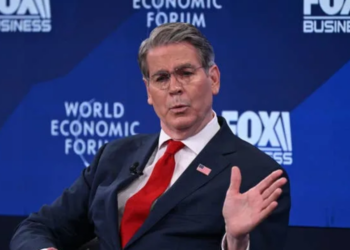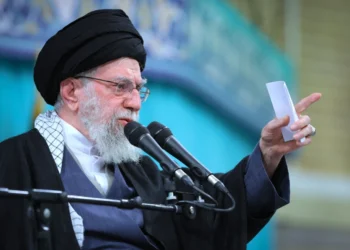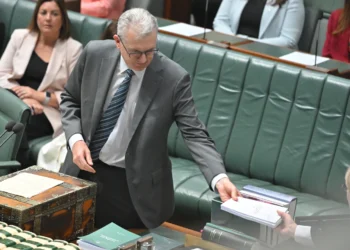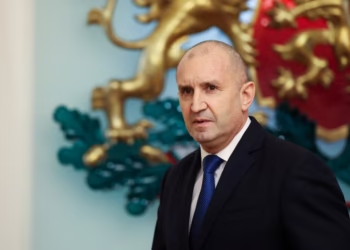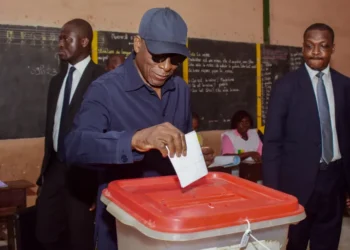SEOUL (Realist English). Newly elected President Lee Jae-myung, who won South Korea’s 2025 snap election with the highest popular vote in the nation’s history, has announced an ambitious reform package aimed at repositioning the country as a global economic leader and restoring democratic norms. In his first major policy declaration, Lee pledged deep investments in future industries, expansive social reforms, and a rebalanced foreign policy.
AI and culture at the heart of economic growth
Lee’s flagship initiative is a ₩100 trillion ($73 billion) push to position South Korea among the world’s top three artificial intelligence powerhouses. The plan includes a nationwide network of AI data centers, 50,000 high-performance GPUs, and public-private funds to fuel generative AI innovation.
The government also plans to expand semiconductor education, launch AI-dedicated colleges, and offer military service exemptions for elite AI talent. The “AI for All” initiative will provide free access to AI tools, while incentives will boost clean-tech and smart grid infrastructure.
Lee also emphasized the strategic value of South Korea’s cultural exports — K-content, arts, and entertainment — projecting ₩300 trillion in annual sales and ₩50 trillion in exports by 2030.
Democratic reset after martial law
Following the political crisis of December 2024, when former president Yoon Suk Yeol declared martial law and was later impeached, Lee vowed to reinforce civilian control over the military, restrict executive powers, and ban politically motivated prosecutions.
Key judicial reforms include separating investigative and prosecutorial powers, making trials faster and more transparent, and enhancing oversight of institutions such as the National Human Rights Commission.
Household relief and small business support
Lee pledged sweeping economic relief to households and small enterprises, particularly those hit by the pandemic and last year’s constitutional crisis. Proposals include debt restructuring, rent transparency, and efforts to curb predatory lending and reform digital platform commission fees.
He also promised support for local economic revitalization, better housing protections, and safeguards for financial consumers, along with reforms to address market manipulation and corporate unfair practices.
Foreign policy realignment
On the diplomatic front, Lee committed to pragmatic, balanced foreign policy. He will strengthen alliances, especially with the U.S., but also diversify ties with the EU, G20, and Southeast Asia. While reaffirming support for Ukraine, Lee will resume peace talks with North Korea and advocate for wartime operational control to be returned from the U.S. to South Korea.
Trade strategy will be reoriented, focusing on economic security, supply chain resilience, and climate diplomacy. South Korea will use its upcoming APEC presidency to promote multilateral economic cooperation.
Safety, public health, and welfare overhaul
To address public anxiety, Lee will bolster disaster preparedness, crime prevention, and medical access, including nationalizing emergency response services and supporting telemedicine. A new committee will lead national health reform, aiming to reduce costs and restore trust in public hospitals.
His welfare agenda includes raising child benefits eligibility to age 18, increasing caregiving access, supporting the elderly and disabled, and reducing reliance on private education.
Tackling the demographic crisis
With South Korea’s birth rate at a record low, Lee has promised aggressive steps to combat demographic decline, including tax credits for families, subsidized child care, and senior-friendly housing. Retirement age and pension systems will be overhauled to secure income stability for the aging population.
Green transition and carbon neutrality
Lee’s climate vision includes phasing out coal by 2040, expanding solar and wind power, and introducing energy highways and smart grids. His administration will revise South Korea’s Carbon Neutrality Framework Act, promote EV adoption, and support a “just transition” in carbon-dependent regions.
Regional development and labor rights
Lee committed to finalizing Sejong as the country’s administrative capital and decentralizing national growth via a “5 Megaregions + 3 Special Provinces” strategy. He also pledged to reform the labor system, enshrine union rights, improve occupational safety, and promote gender equality and disability access.
A shorter 4.5-day work week is among the proposals to improve work-life balance.
Institutional and financial reform
The Ministry of Economy and Finance will be restructured. A new Budget Office and Ministry of Economy will redistribute fiscal power and increase oversight. The Financial Services Commission and Financial Supervisory Service will be split to better regulate policy and supervision independently.
Migrant labor and immigration policy
Although foreign residents were not directly addressed in Lee’s campaign pledges, his Democratic Party platform includes immigration reform. He has previously supported improved working conditions for migrant workers, and discussions on policy modernization are reportedly ongoing.
Outlook
President Lee enters office with an ambitious to-do list and a historic mandate. The success of his administration will hinge on his ability to navigate entrenched institutions, deliver swift economic results, and rebuild public trust — all while reorienting South Korea’s place in a volatile global order.



